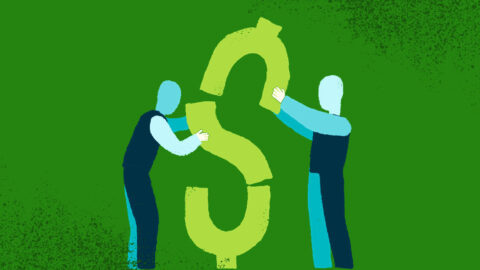Tips to overcome your financial triggers
Bad spending habits are usually accompanied by emotions and many cite stress, pleasure and sadness as the triggers that lead them to overspend

Almost everyone experiences financial triggers, and like any other issue involving money and emotions, they typically don’t go away forever.
Financial triggers or financial stress triggers are circumstances which cause financial stress like unemployment or inability to get full time work, rising debt, lack of health insurance or paying mortgage.
Circumstances like these can become severe roadblocks to achieving your financial goals if they aren’t addressed early on.
For starters, these triggers frequently result in bad habits such as taking out small quick loans or general overspending, which can result in debt of hundreds (or thousands) of shillings.
These bad spending habits are usually accompanied by emotions and many cite stress, pleasure and sadness as the triggers that lead them to overspend. Nothing beats splurging on a new pair of shoes or a night out with friends to blow off steam. However, once you realize you’ve accumulated additional debt or drained your savings, the emotional high passes.
Still, there are ways to recognize and manage financial triggers so that they don’t disrupt your long-term goals. Here are some triggers and methods to overcome them.
Trigger 1: Making too many financial decisions at once
Making many financial decisions at once can be overwhelming and you can find yourself losing track of a few obligations. So, the best way to get ahead of them before they become overwhelming is to simply write them down; organizing them in terms of priority so you can assign them timelines on when they should be paid. Standing orders can help as a set amount at regular intervals is deducted from your account to the respective accounts.
Finding ways to reduce decision-making and spread out your financial obligations might help relieve the stress of having to deal with everything at once.
Trigger 2: Feeling bored
Making a purchase can momentarily alleviate negative emotions by releasing endorphins, which make you feel good at the moment. However, once the reality of the spending binge sets in, those happy feelings will vanish.
Recognize those feelings of boredom, loneliness, and unhappiness, they’re important and are probably indicators of other issues. However, instead of spending money to dull those feelings call a friend or even go see them, start a small project that you can finish quickly, or do some light exercise. All these activities release the same feel-good brain chemicals as spending money and don’t cost you anything.
Trigger 3: Getting unexpected cash
Work bonus, overtime pay, tax refund, birthday cash. You weren’t expecting that money anyway, so it’s free game, right? Wrong! It’s tempting to spend this “unexpected” money, but once it’s gone, it’s gone forever. Instead, why not make it work for you?
Allow yourself one tiny indulgence, then put the remainder of your funds to good use. Make a larger credit card payment with it, make an extra mortgage payment with it, or establish or add to your emergency fund.
Trigger 4: Great retail deals
Most of the time, sticking to our budget is challenging since retail stores are so adept at persuading us to part with our money. It’s critical to be aware of retail techniques in order to ensure that you only spend what you intended to spend, and if you know you are a person who cannot resist temptation, unsubscribe from retailers’ email lists and shopping apps. When you have nothing else to do, avoid browsing (in-store or online) and instead engage in another activity.
Trigger 5: Self-love, Self-care, and self-gifting
It is almost a tradition for one to gift themselves when they achieve a life milestone. And with the global pandemic making life tough and the self-love movement growing, why not treat yourself? Times are tough and you deserve some pleasure. However, one ought to remember that frequently gifting yourself because you believe you deserve it might end up leaving a dent in your finances.
So instead ask yourself the right questions like “Do I need this?”, or “Will the thing I’m considering buying make my life better?”. Also, pause and use the 24-hour rule. Once you pause, you put space between you and your impulse so you can observe your urges from an objective point of view.





